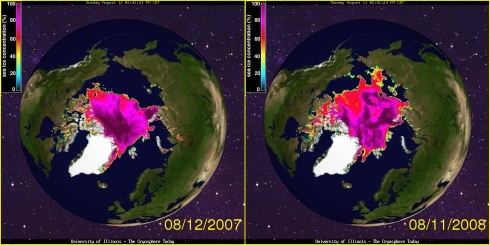Producer Paul Manson and I, along with cameraman Callan Griffiths and soundman Ben Adam, were sent here on assignment to report on climate change and the Arctic for an upcoming broadcast. The primary news peg — and one reason for our visit — is that for only the second time in recorded history the Northwest Passage is ice free, effectively clearing this shortcut between Europe and Asia.
This marks their third week stranded by bad weather.




